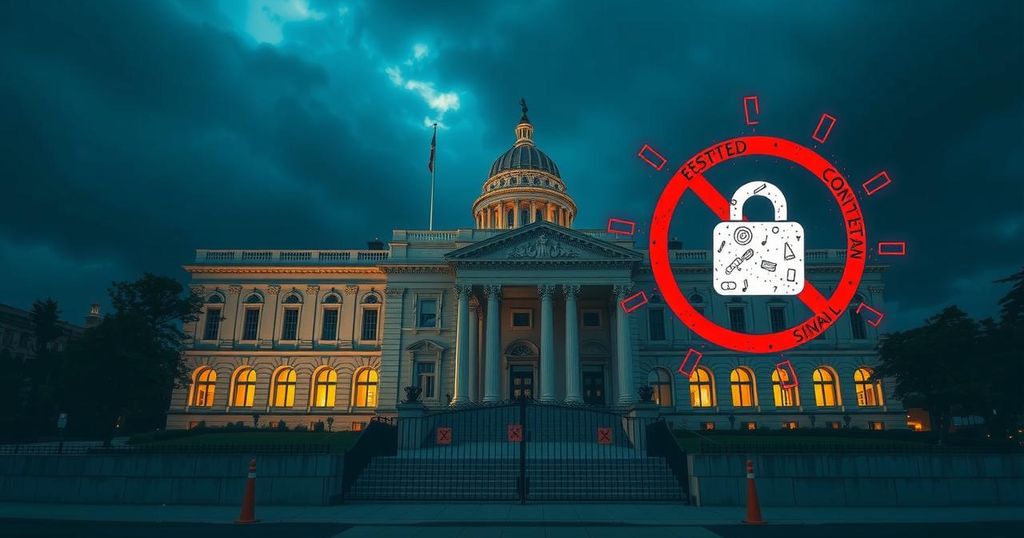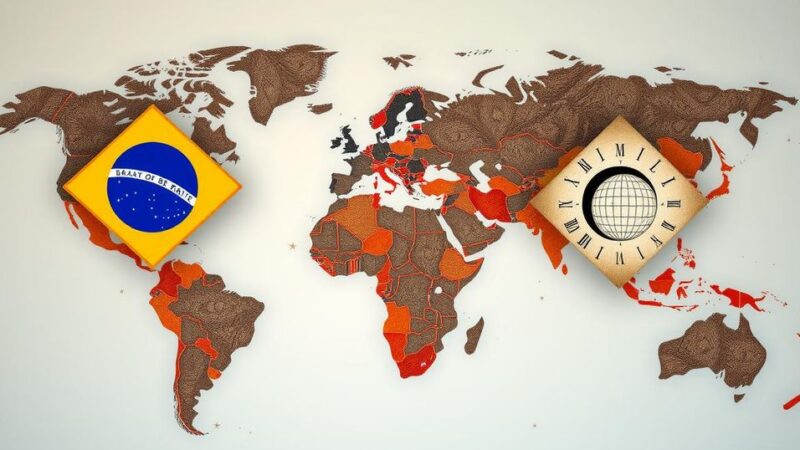On November 26, Iraq blocked access to IMDb due to concerns over immoral content, as claimed by the Ministry of Communications. This decision follows ongoing government monitoring indicating the presence of pornographic material on the site. The ban contributes to a broader trend of internet regulation in Iraq, which has seen increased website censorship and reduced internet freedoms over the past year. Despite high internet penetration rates, the costs and infrastructure issues significantly hinder access to digital services.
On November 26, Iraq’s Ministry of Communications announced the blocking of access to the widely used entertainment platform, IMDb, citing concerns regarding its purportedly immoral content. This action is part of an increasing trend of internet regulation within the country, which has seen significant restrictions on access to various websites. The ministry highlighted that the decision followed rigorous monitoring by Al-Salam General Company, a government entity responsible for evaluating online content, revealing what officials characterized as pornographic films and unethical pages.
The ministry defended its decision, stating, “The blocking decision was not arbitrary, contrary to what some have claimed. It was implemented after sustained monitoring revealed content that includes pornographic films and unethical pages.” This action, according to the officials, seeks to safeguard the social and cultural values of Iraqi society, although specifics regarding the content that triggered the ban remain undisclosed.
Founded in 1990, IMDb is one of the largest global entertainment databases, boasting over 200 million monthly visitors. The website offers extensive information about films, television shows, and performers. Notably, IMDb does not provide services in Arabic and is primarily accessible in European languages and Hindi. The recent blockade reflects a broader decline in internet freedom in Iraq, as noted in recent analyses that indicate a rise in website censorship, prolonged imprisonment for online content, and repeated internet blackouts during specific periods such as academic examinations.
According to a report by Freedom House, Iraq experienced a dramatic decrease in internet freedom over the past year, noting that the country implemented 66 network outages in 2023, a figure higher than in any other country. These blackouts are reportedly aimed at preventing cheating during academic assessments but have significant economic implications, costing the nation around $1.4 million per day. This increasing trend of internet regulation aligns Iraq with its neighboring nations, such as Iran and Saudi Arabia, known for strict online censorship policies.
Despite boasting an internet penetration rate of 78.7% as of January 2024, Iraq still grapples with considerable infrastructure issues and high costs associated with internet services. The average fee for fixed broadband services in the country stands at $36.14 monthly, which is notably expensive given the slow internet speeds, particularly in rural areas where residents often rely on outdated 2G technologies.
The blocking of IMDb by Iraq’s Ministry of Communications represents a significant escalation in the government’s control over online content. The rationale provided centers on protecting societal norms and values from what officials term immoral content. This action fits within a larger context of deteriorating internet freedoms in Iraq, where governmental scrutiny over digital platforms has intensified. Allegations of moral offenses in media content often arise in regions facing sociopolitical uncertainties, influencing how governments regulate access to information. Iraq’s internet infrastructure challenges, coupled with high service costs, exacerbate the situation, limiting citizens’ access to global platforms and information. Current global trends also reflect a rise in similar censorship practices by regional neighbors.
In summary, Iraq’s decision to block IMDb illustrates a broader pattern of increasing online censorship and regulation within the country. This measure, justified by officials as a protective action for cultural values, ties into a larger narrative of diminished internet freedom and the government’s intensified scrutiny over digital content access. The implications of such actions raise considerable concerns about freedom of expression and the availability of information to the Iraqi populace, particularly in a context where internet penetration is growing yet remains marked by significant operational and economic challenges.
Original Source: www.intellinews.com







